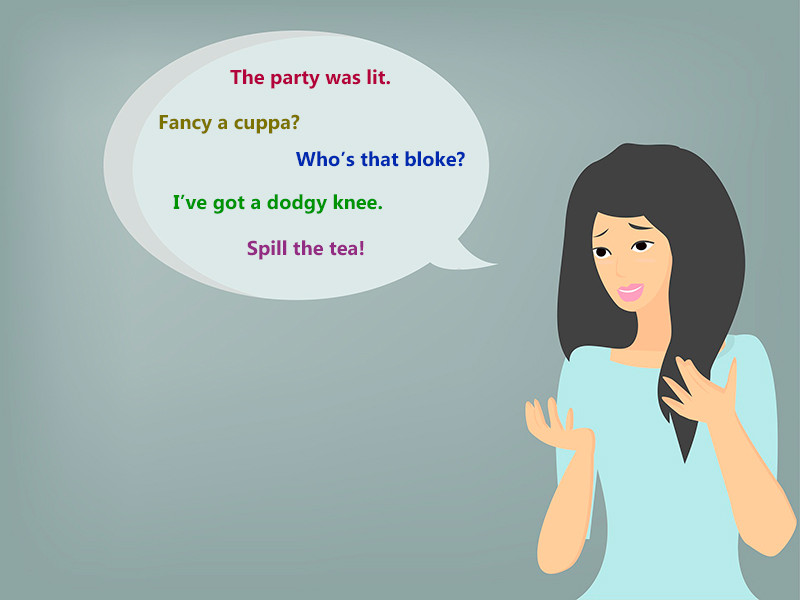Why should we learn SLANG to speak English?

For those of you who are learning English or have the intention of learning it, you should know that, apart from studying a series of grammatical structures and a certain number of words, there is a part which does not often appear in the textbooks and which is precisely what you will hear in informal environments and which is called SLANG.
Let's take a look at the definition of this word. According to the dictionary, SLANG is any word or expression that is used in very informal contexts and is often not considered appropriate to use in formal contexts. Sometimes it is a language used by specific groups such as young people. You have to be careful with the use of SLANG because it can be offensive.
In short, SLANG would be a type of language that uses rhetorical figures of speech such as metaphor, phrases with double meanings, ironies or comparisons, in order to give a different meaning to words.
Obscure origin
It seems that the etymology of this word is of Norse origin, specifically from the following difficult to pronounce phrase "slengja kjeften" which in English would be "sling the jaw", meaning something like "to abuse words".
By all accounts, the SLANG language became popular in the mid-eighteenth century and was attributed to people of ill repute, tramps, thieves and assorted criminals, perhaps to communicate with each other in a way that no one else knew what they were talking about.
Such language was also associated with human anatomy and taboo subjects, such as sexuality. Later, towards the 1920s, a more liberal attitude towards SLANG began to emerge, mainly due to its popularity among many fiction writers.
A few years later, specifically in the 1980s, its use began to expand and it became part of people's everyday expressions, which meant that it went from being a type of language associated with certain types of slightly undesirable groups, to being an indispensable part of the English language. However, it is still informal and below the standard of what is considered polite language.
Reasons to learn it
This type of language is very changeable; what we call one thing today it will be called something else in a few years' time. This does not only happen in English, in Spanish, in the 80s and 90s, when something was very good or liked a lot, it was called "chachi piruli" or "guay del Paraguay"; on the other hand, now it is said that something is "top" or "es lo más".
Learning SLANG is not easy because it does not appear in textbooks and it will also depend on where the speaker comes from; the slang of a Londoner is probably not the same as the slang of a Scottish person or someone from Manchester. Even so, it is worth knowing this kind of slang for the following reasons:
1. Avoid misunderstandings.
As we have already mentioned, the particularity of SLANG is that a word whose general meaning we know can express something completely different, making it very easy to get lost, confused and even misunderstand what is being said in a conversation.
For example, let's say we hear this sentence: "She is a bit salty because she hasn't been given the lead role in the school play"; if we stop at the word "salty", the first thing that comes to mind is that something conteins salt, which makes no sense to Spanish speakers. However, in colloquial language "salty" means to be angry or resentful about something that is usually silly.
2. Good communication.
Whatever the reason why someone ends up learning English: work, tourism, love, hobby..., they all want the same thing, to communicate with other people, to have as fluent a conversation as possible.
This is where SLANG becomes important, as native English speakers will speak as they do on a day-to-day basis, i.e. in the language of the street, not as the news anchor or our teacher would. In fact, any informal conversation is full of colloquial expressions, in any language and in any country in the world.
3. Cultural experience.
The language of a country is an important part of its culture, as it reflects the behaviour and evolution of its society. Language is a living thing that transforms itself and is gradually moulded to create new words in accordance with the times at any given moment.
Learning SLANG gives us a broader view of the language, in fact it helps us to understand other cultures, through songs, literature, cinema, theatre and television. In all these areas, colloquial expressions are used, which have been formed for various reasons and by the contribution of different groups until they have become popular and have ended up forming part of everyday language.
4. Express ourselves without limits.
The thing about slang is that it describes how we feel in a more accurate way and helps us to express ourselves better, something that a standard word from the dictionary probably can't do as well.
For example, we can say that something is "boring", but if we say that something is "a drag" then we give more emphasis to the feeling of boredom. Another example, in standard language we would say "My hair is really dirty", in SLANG we would say "my hair is so manky".
In short, as we have just seen, knowing the SLANG language is of vital importance if we want to understand and speak English like a native speaker. To do so, there is nothing better than listening to English a lot, looking at the lyrics of songs and watching TV series, films and YouTube videos, as SLANG is commonly used in these areas.
Finally, it is important to be sure of the meaning of SLANG words and expressions because in certain contexts we can give the impression that we are rude.
Artículos relacionados
Comment















